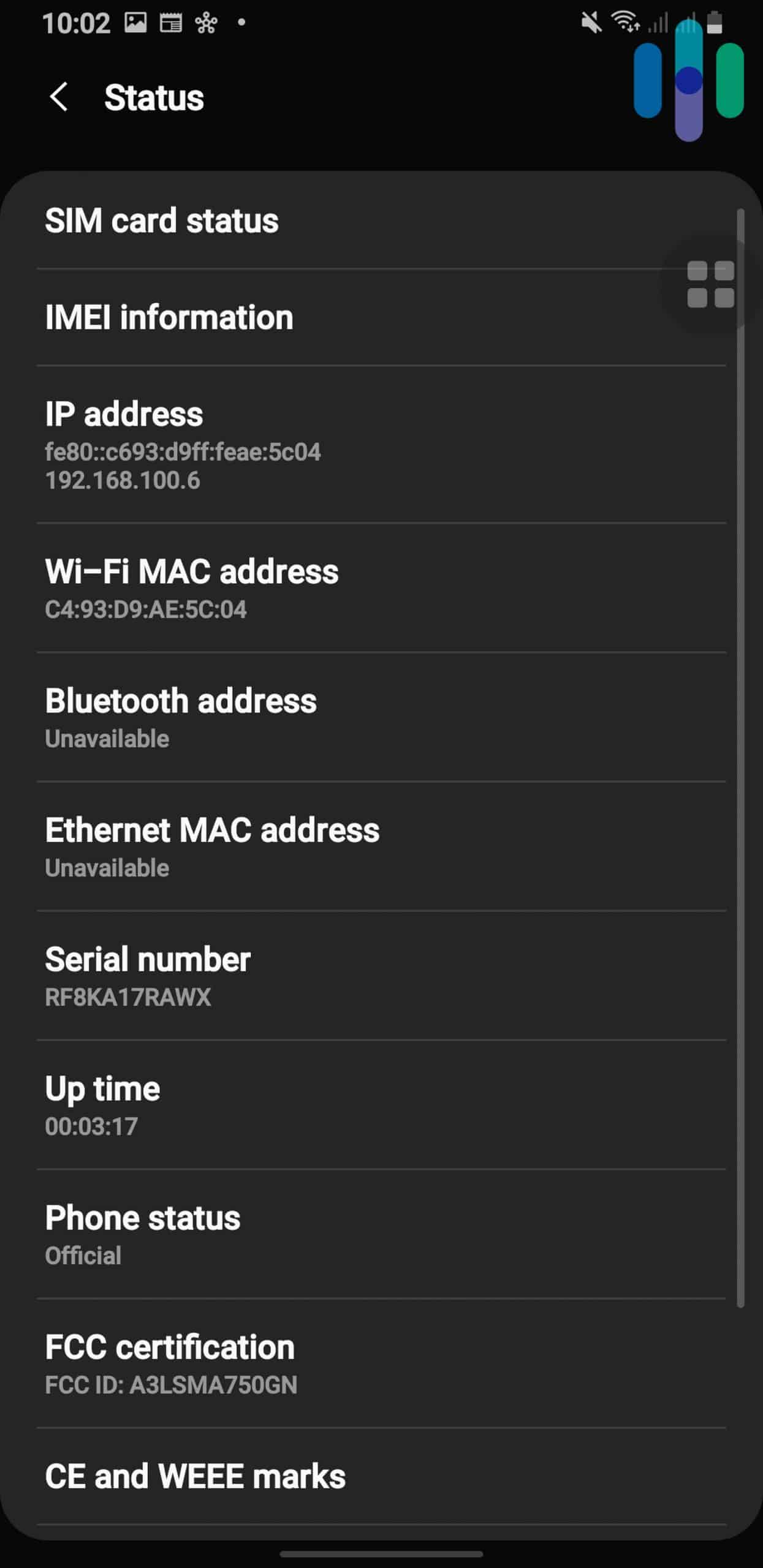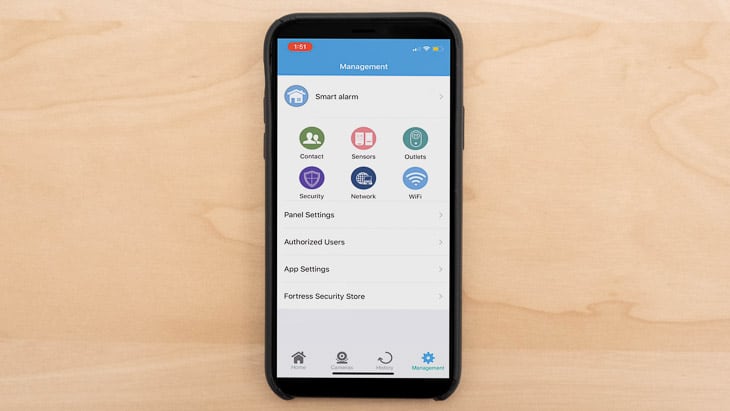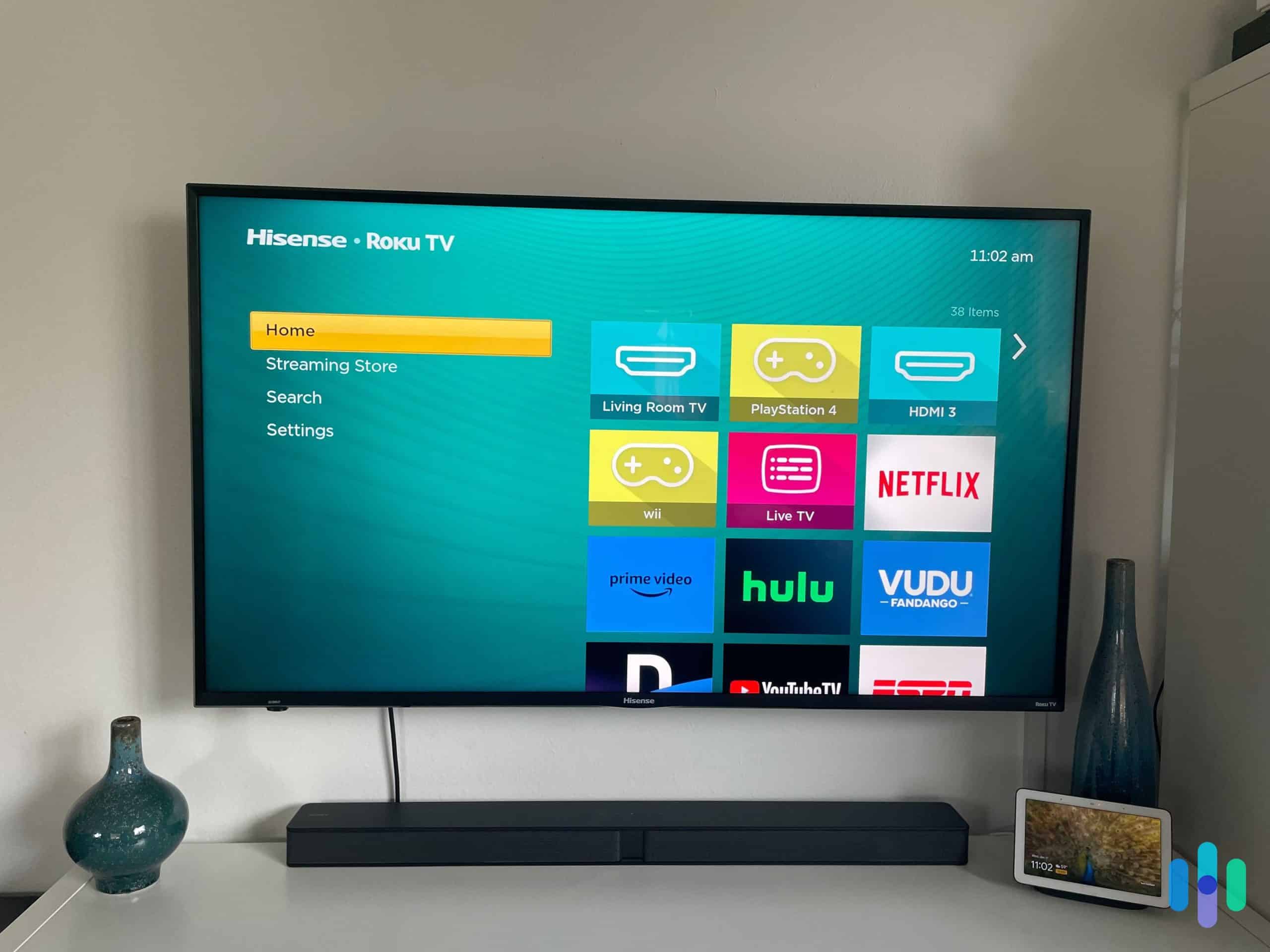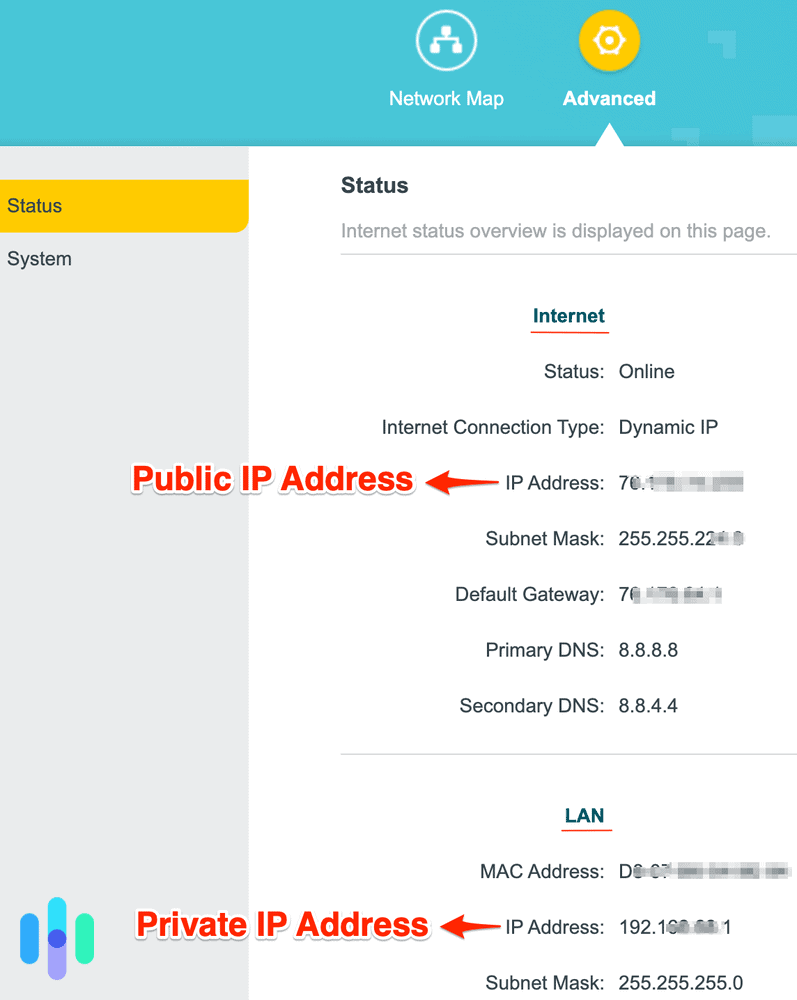There are several ways to look up your computer’s IP address — such as via Command Prompt (Windows) or Terminal (macOS) — but the easiest is to use our free IP Address Lookup tool. It analyzes traffic coming from your device to detect and show you your network’s public IP address.
You can use our IP Address Lookup tool to:
- Check that your VPN is working: A VPN is supposed to hide your IP address. If the results you get before and after connecting to a VPN differ, that means your VPN works.
- Troubleshoot network problems: If you’re experiencing network issues, some troubleshooting methods such as ping and traceroute tests require that you know your network’s IP address.
- Look up the IP address of a smart TV: Smart TVs don’t have Command Prompt or Terminal, but as long as it has a browser, you can use our tool to find out its IP address.
FYI: Our IP Address Lookup utility works on all devices that have a browser. Unfortunately, that doesn’t include Wi-Fi printers. Check our guide on how to look up your printer’s IP address.
What’s an IP Address?
An Internet Protocol address (IP address) is a unique identifier assigned to an internet-connected device or network. It lets other devices know how where to send data, which is essential for functions such as:
- Online communications
- Downloads
- Loading websites
- Remote server access
- File transfers
What Are The Types of IP Addresses?
The two main types of IP addresses are private and public.
A private IP address is assigned by a router to each device connected to the network. If you’re on your home network, your phone, laptop, and tablet each has a different private IP address. However, these IP addresses are not unique; your neighbor’s router can assign the same set of addresses to connected devices. They usually look like this — 192.168.x.x.
A public IP address is assigned by internet service providers (ISPs) to networks (e.g. your home network), and this is unique. No two networks can have the same public IP address. However, devices connected to the same network will all have the same public IP address. Our tool identifies your network’s public IP address. If you use it on multiple devices connected to the same network, you’ll get the same results.
>> Further Reading: Static vs. Dynamic IP Addresses
Did You Know: Another Way to Put It”]You can think of public and private IP addresses like an apartment building address and apartment unit number. Each apartment building has a unique address, but unit numbers (e.g. unit 1, unit 2, etc.) inside the building can be the same as unit numbers in the apartment building next door.
Why You Should Keep Your Public IP Address Hidden
This might seem counterintuitive coming from a page that offers to show you your IP address. But if there’s one thing we’ve learned, it’s how easy it is to identify a person’s unique address on the internet.
Don’t worry; we’re not cybercriminals. We are cybersecurity experts advocating for digital safety. But that’s just us. Every website you visit knows your IP address, and if you happen to enter a malicious website, cybercriminals might be able to use your IP address to their advantage.
Here are three common tactics cybercriminals might use to exploit your public IP address.
Port Forwarding Attacks
If you use port forwarding and a hacker finds out your IP address, that port can serve as a backdoor onto your devices. That’s because port forwarding opens a network port within your private network so that devices outside the network can easily access your local network. It’s great for torrenting and gaming, until a malicious actor finds out your IP address.
Protect Yourself: Using a VPN that supports port forwarding can help you avoid port forwarding attacks. Check out our list of the best torrenting VPNs — some of them feature port forwarding.
Router Firmware Attacks
If you don’t update your router’s firmware or haven’t changed the default admin password, a hacker could slip right onto your network. They’d be able to hijack your traffic or even remotely access your devices by exploiting your router’s vulnerabilities.
Protect Yourself: Always keep your router’s firmware up-to-date and use antivirus software with a firewall to sniff out network intruders. Alternatively, you can use a VPN router to effectively hide your network’s IP address, even from network-level attackers.
Malware Attacks
Remote Access Trojans (RATs) are a type of malware designed to infiltrate devices and report back to the hackers responsible for the attack. One of the pieces of information they want is your IP address, which would allow them to initiate more sophisticated attacks such as ransomware.
Protect Yourself:
Ransomware hits victims everywhere, but half of them are in the U.S.1 You can protect yourself by using a VPN and antivirus software together. The VPN encrypts all traffic coming from your device, while antivirus software detects RATs and malware. See our list of the best VPN and antivirus bundles.
How to Hide Your IP Address
The good news is you can hide your public IP address and protect yourself from the exploits mentioned. It’s easy — you just need to use a virtual private network (VPN) everytime you connect to the internet.
What Is A VPN?
A VPN is a type of networking software that encrypts your traffic and, in a way, changes your IP address. It reroutes all your online traffic to a remote VPN server while also encrypting it. As a result, when you visit a website or use an IP Address Lookup tool like ours, it sees the VPN server’s public IP address; not that of your network.
Try It! How to Use Our IP Address Lookup Tool to Test VPNs
First, pick a high-quality VPN. Our list of the best VPNs of 2026 might help, or if you’re not looking to commit yet, try our list of free VPNs we’ve tested safe and secure.
Next, download and install the VPN, but don’t connect it yet. First run the IP Address Lookup and note the result. Once that’s done, you can connect to the VPN. Any server will do. Finally, run the IP Address Lookup again. The result should be different from the first one. That’s how you know the VPN is hiding your IP address.
FAQs
-
Are IP address lookup sites safe?
Some are safe, but it’s tricky to know which. Some might record your IP address and use it for marketing and ads-targeting. Our IP Address Lookup tool, however, doesn’t log any of the results. It’s 100% safe, and only you can see the results of your IP address lookups.
-
What’s the difference between a public and private IP address? Your public IP address is unique to the network you’re connected to. It identifies your digital address within the world wide web. Your private IP address, on the other hand, only identifies your device within your current network.
Your public IP address is unique to the network you’re connected to. It identifies your digital address within the world wide web. Your private IP address, on the other hand, only identifies your device within your current network.
-
Can criminals use my IP address to hack me?
Yes. If cybercriminals can see your actual public IP address, it’s relatively easy for them to gain access to your devices and/or network.
-
What’s the best way to hide my IP address?
Use a good VPN. A quality VPN will mask your IP address and encrypt your web traffic, making it virtually impossible for hackers to exploit your IP address.
-
Do I need a VPN?
If you value your privacy and want to keep criminals off your devices, then yes.




